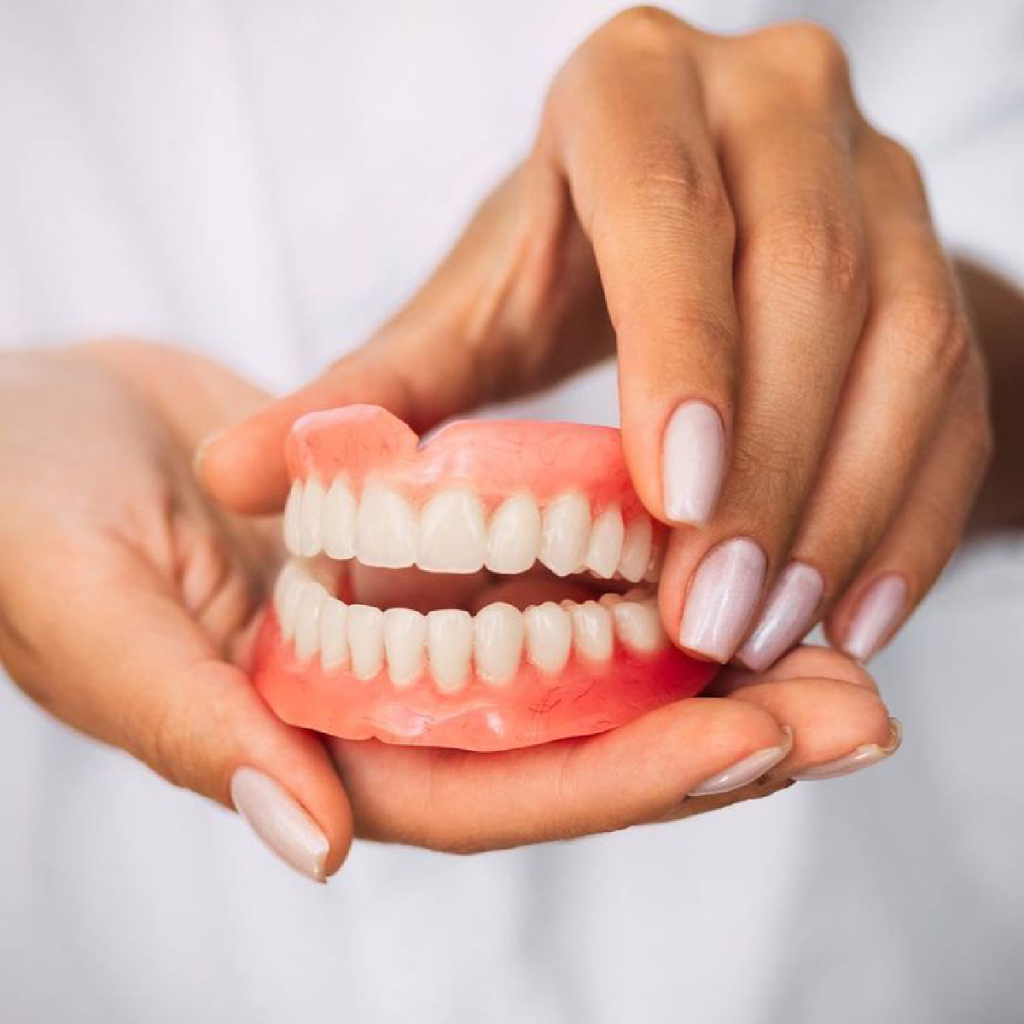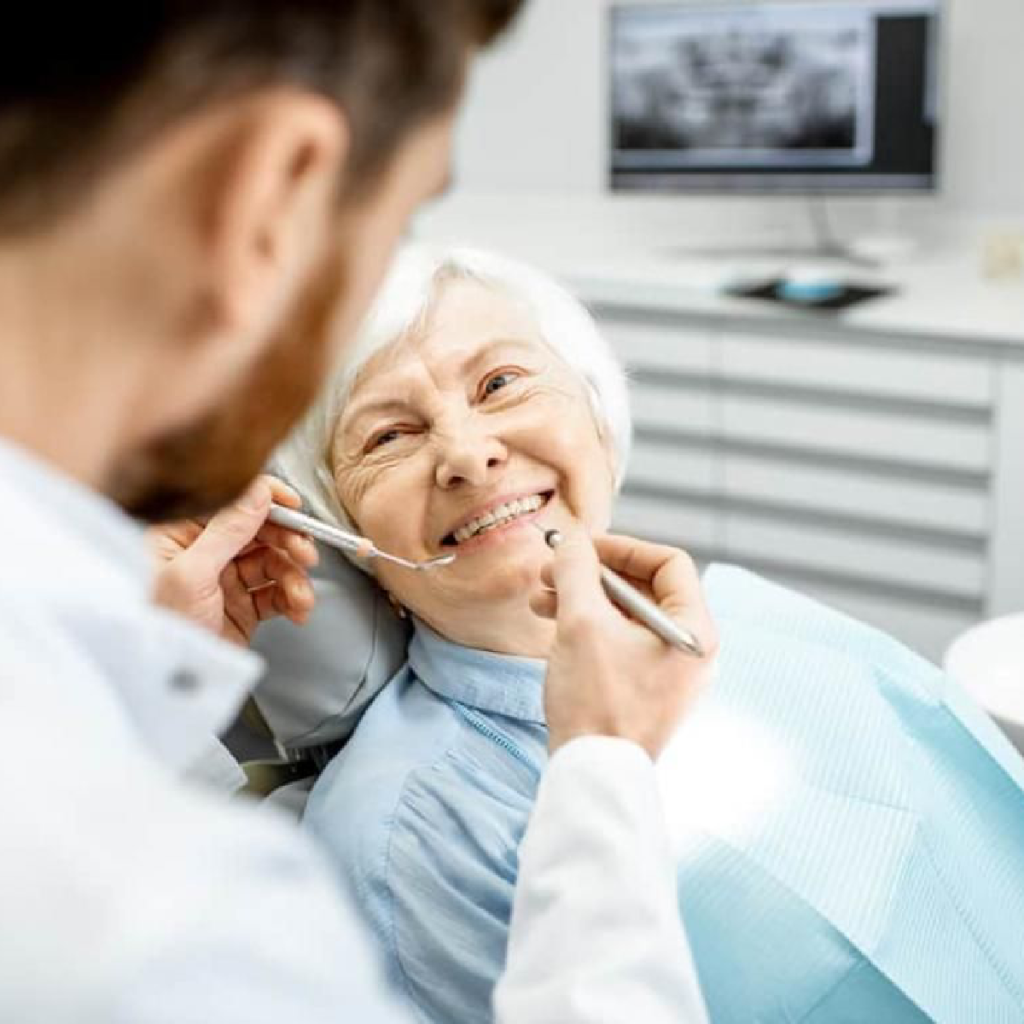Learn about the unique challenges and concerns surrounding gum health in older adults.
Examining the Specific Concerns of Gum Health in Older Adults
Welcome to the fascinating world of gum health in older adults! In this article, we will delve into the importance of gum health, the common issues faced by older adults, the factors that affect gum health, as well as prevention and treatment strategies. So, grab your toothbrush and let’s dive right in!

Understanding the Importance of Gum Health
Gum health plays a crucial role in our overall well-being. It’s not just about having a pretty smile; healthy gums can have a positive impact on our digestive system, heart health, and even mental well-being. So, taking care of our gums is not just a matter of dental hygiene but also a matter of holistic health.
When we think about oral health, we often focus on our teeth. However, our gums are just as important. They provide a protective barrier for the roots of our teeth and help anchor them in place. Without healthy gums, our teeth can become loose and even fall out, leading to difficulties in eating and speaking.
But the benefits of gum health go beyond just oral hygiene. Did you know that our mouth is a gateway to our body? It’s true! Gum health has been linked to various diseases such as diabetes, heart disease, and respiratory infections. Research has shown that the bacteria present in gum disease can enter the bloodstream and travel to other parts of the body, causing inflammation and potentially contributing to the development of these conditions.
The Role of Gum Health in Overall Well-being
When we neglect our gum health, we not only put our oral health at risk but also our overall well-being. Poor gum health has been associated with an increased risk of heart disease. The inflammation caused by gum disease can contribute to the narrowing of blood vessels, making it harder for blood to flow freely to the heart. This can lead to high blood pressure, heart attacks, and strokes.
Furthermore, gum disease has been linked to complications in pregnancy. Pregnant women with gum disease are more likely to give birth prematurely or have low birth weight babies. The bacteria present in gum disease can enter the placenta and affect the developing fetus, potentially leading to adverse outcomes.
Why Gum Health Matters More in Older Adults
As we age, our gums become more susceptible to various issues. The natural wear and tear of time can lead to gum recession, which exposes the delicate roots of our teeth and increases the risk of decay. Additionally, older adults may be more prone to chronic conditions like diabetes or arthritis that can impact gum health. Therefore, paying extra attention to gum care becomes vital for the older adult population.
Older adults may also face unique challenges when it comes to maintaining good oral hygiene. Arthritis, for example, can make it difficult to hold a toothbrush or floss properly. Medications commonly taken by older adults can also have side effects that affect oral health, such as dry mouth or gum overgrowth.
It’s important for older adults to visit their dentist regularly and discuss any concerns they may have about their gum health. Dentists can provide personalized recommendations and treatments to help maintain healthy gums and prevent further complications.
Common Gum Health Issues in Older Adults
Let’s face it – nobody enjoys dealing with gum problems. However, it’s essential to be aware of the common issues faced by older adults to tackle them head-on. The two major concerns are periodontal disease and gum recession.
Periodontal Disease: A Closer Look
Periodontal disease, also known as gum disease, is a condition that affects the tissues surrounding the teeth. It can lead to gum inflammation, tooth loss, and other serious complications if left untreated. Older adults must be vigilant in preventing and managing this condition to protect their oral health and overall well-being.
Periodontal disease is caused by the buildup of plaque, a sticky film of bacteria that forms on the teeth. If not removed through regular brushing and flossing, the bacteria in plaque can irritate the gums, causing them to become red, swollen, and prone to bleeding. Over time, the infection can spread to the bone and supporting structures, leading to tooth loss.
Preventing periodontal disease involves maintaining good oral hygiene practices, such as brushing twice a day, flossing daily, and visiting the dentist regularly for professional cleanings. In addition, older adults should be aware of risk factors that can increase their susceptibility to gum disease, such as smoking, diabetes, and certain medications.
Managing periodontal disease requires a comprehensive approach that may include deep cleaning procedures, antibiotics, and in severe cases, surgery. It’s important for older adults to work closely with their dentist or periodontist to develop an individualized treatment plan that addresses their specific needs.
Identifying Gum Recession and Its Impacts
Gum recession is another common issue faced by older adults. It occurs when the gum tissue pulls back, exposing the roots of the teeth and making them more vulnerable to damage and infection. It can also cause tooth sensitivity, making it uncomfortable to eat or drink hot or cold foods. Being aware of the signs of gum recession and seeking appropriate treatment is essential for maintaining oral health.
Gum recession can be caused by various factors, including aggressive brushing, poor oral hygiene, hormonal changes, and genetic predisposition. As we age, the gums naturally recede to some extent, but excessive recession can lead to aesthetic concerns and dental problems.
One of the early signs of gum recession is tooth sensitivity, especially to hot or cold temperatures. This occurs because the exposed roots lack the protective enamel that covers the crowns of the teeth. In addition to sensitivity, individuals may notice that their teeth appear longer, or they may experience a notch at the gumline.
It’s important for older adults to seek professional dental care if they suspect gum recession. The dentist can evaluate the extent of the recession and recommend appropriate treatment options. These may include scaling and root planing, gum grafting, or orthodontic procedures to reposition the teeth.
Preventing gum recession involves practicing good oral hygiene, using a soft-bristled toothbrush, and avoiding aggressive brushing. It’s also important to address any underlying factors that may contribute to gum recession, such as gum disease or hormonal changes.
In conclusion, older adults should be proactive in maintaining their gum health. By understanding the common issues of periodontal disease and gum recession, they can take the necessary steps to prevent and manage these conditions. Regular dental check-ups and good oral hygiene practices are key to ensuring a healthy smile for years to come.
Factors Affecting Gum Health in Older Adults
Now that we understand the importance of gum health and the common issues faced by older adults, let’s explore the factors that can affect gum health in this age group. Aging and medications are two key factors to consider.
The Influence of Aging on Gum Health
As we age, our bodies undergo various changes, and our gums are no exception. Reduced blood flow and thinning gum tissue can make older adults more susceptible to gum disease. The gums may also recede, exposing the sensitive roots of the teeth and increasing the risk of decay and infection.
Furthermore, the immune system weakens with age, making it harder for the body to fight off infections and diseases, including gum disease. This is why it’s crucial for older adults to maintain good oral hygiene practices and seek regular dental check-ups. Brushing twice a day with a soft-bristled brush, flossing daily, and using an antimicrobial mouthwash can help combat these age-related challenges and maintain healthy gums.
In addition, certain medical conditions that are more prevalent in older adults, such as diabetes and osteoporosis, can also affect gum health. Diabetes, for example, can impair blood circulation and increase the risk of gum disease. Osteoporosis, on the other hand, can weaken the bones supporting the teeth, leading to tooth loss and gum problems.
The Impact of Medications on Gum Health
Certain medications, such as those prescribed for heart disease or high blood pressure, can have side effects that impact gum health. Dry mouth, a common side effect of many medications, can contribute to gum disease. Saliva plays a crucial role in maintaining oral health by neutralizing acids produced by bacteria and washing away food particles. When there is a decrease in saliva production, the mouth becomes more susceptible to bacterial growth and gum problems.
If you’re taking medications, it’s essential to discuss any potential oral health concerns with your healthcare provider and dentist. They can provide guidance on managing dry mouth and recommend suitable oral hygiene products, such as saliva substitutes or moisturizing mouth sprays, to alleviate the symptoms and protect your gums.
Moreover, some medications, such as anticoagulants or blood thinners, can increase the risk of bleeding gums. It’s important to inform your dentist about all the medications you’re taking so that they can take appropriate precautions during dental procedures.
In conclusion, aging and medications can significantly impact gum health in older adults. By understanding these factors and taking proactive steps to maintain good oral hygiene, older adults can minimize the risk of gum disease and enjoy a healthy smile for years to come.
Prevention and Treatment Strategies for Gum Health Issues
Now that we have a solid understanding of the importance of gum health and the factors that can affect it, let’s explore some preventive measures and treatment strategies to keep our gums happy and healthy.
Daily Oral Care Habits for Healthy Gums
The foundation of healthy gums starts with proper oral hygiene. Brushing twice a day with a soft-bristled toothbrush and using fluoride toothpaste can help remove plaque and bacteria that cause gum disease. Don’t forget to floss daily and rinse your mouth with an antiseptic mouthwash to further enhance gum health.
Professional Dental Care for Older Adults
Regular dental check-ups are crucial, especially for older adults. Your dentist can detect any early signs of gum disease, recommend appropriate treatments, and provide professional cleaning to keep your gums in top shape. Don’t let fear or inconvenience hold you back – prioritize your oral health and schedule those dental appointments!
The Future of Gum Health in Older Adults
As we look ahead, exciting innovations in gum health care are on the horizon. Researchers are exploring various techniques, from stem cell therapies to advanced diagnostic tools, to revolutionize the way we care for our gums.

Innovations in Gum Health Care
One promising area of research is the use of stem cells to regenerate damaged gum tissue. These cutting-edge treatments have the potential to restore gum health and reverse the effects of gum disease. Keep an eye out for these advancements in the near future!
The Role of Education in Promoting Gum Health
Educating older adults about the importance of gum health and providing practical tips for maintaining it is crucial. With the right knowledge and awareness, older adults can take charge of their oral health and enjoy a lifetime of healthy gums and beautiful smiles.
In conclusion, gum health is a topic that deserves attention, especially when it comes to older adults. By understanding the importance of gum health, recognizing common issues, considering the factors affecting gum health, and implementing preventive measures and treatment strategies, we can ensure that our gums remain in excellent shape. So, let’s make gum health a priority and embrace those pearly whites with confidence!






